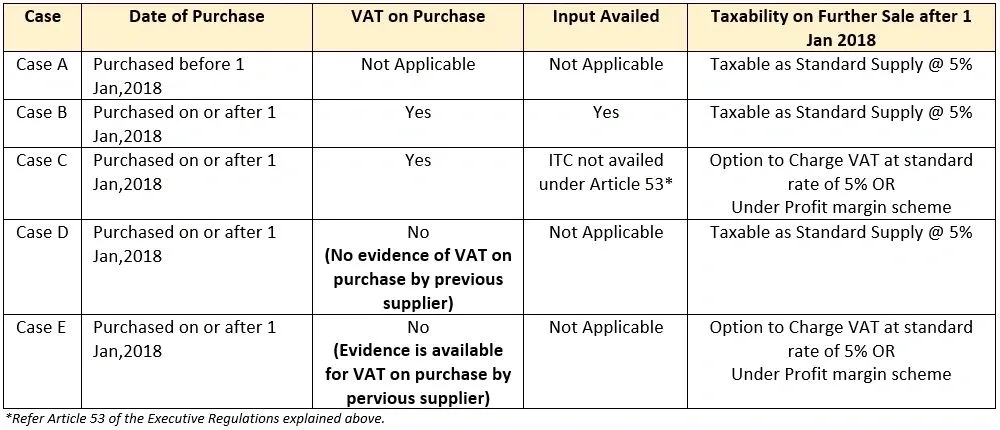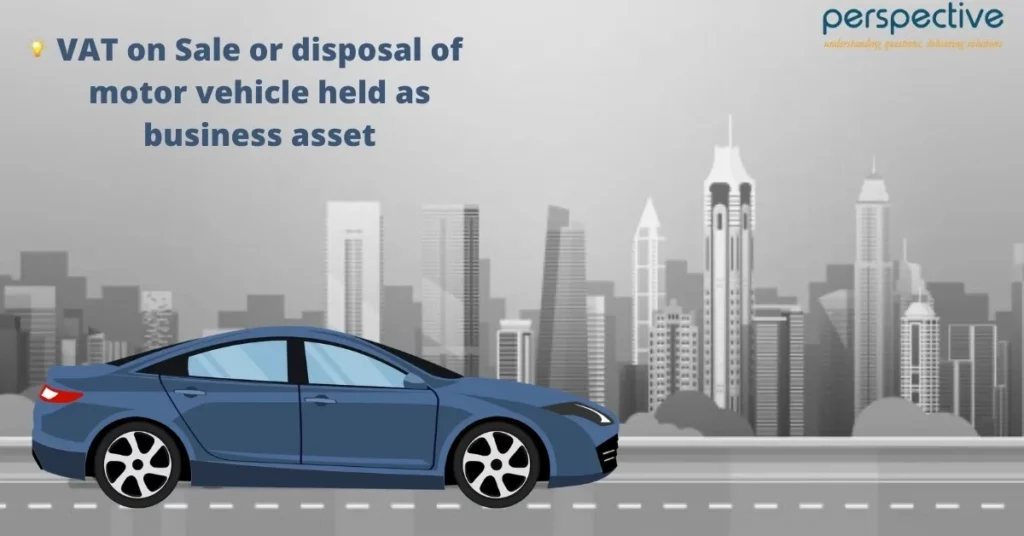VAT on Purchase of Motor Vehicle for Business Purpose
Article 53 of the Executive Regulation which deals with Non-recoverable input tax cases, states that Input Tax is not recoverable where a motor vehicle was purchased, rented or leased for use in the Business and is available for personal use by any Person.
The word ‘motor vehicle’ means a road vehicle which is designed or adapted for the conveyance of not more than 10 people including the driver. A motor vehicle excludes a truck, forklift, hoist, or other similar vehicle.
Further, a motor vehicle shall not be treated as being available for private use if it is within any of the following categories:
a) a taxi licensed by the competent authority within the State;
b) a motor vehicle registered as, and used for purposes of an emergency vehicle, including by police, fire, ambulance, or similar emergency service;
c) a vehicle which is used in a vehicle rental business where it is rented to a customer
a) Truck, forklift, hoist or other similar vehicle
Thus, Input VAT is not available on motor vehicles EXCEPT in the below cases:
b) A taxi licensed by the competent authority
c) a motor vehicle registered as, and used for purposes of an emergency vehicle, including by police, fire, ambulance, or similar emergency service
d) vehicle which is used in a vehicle rental business where it is rented to a customer
In all the other cases, VAT paid on purchase is treated as a part of cost to the motor vehicle.
VAT treatment on further Sale of Motor Vehicle used as a Business Asset
As per Article 29 of the Executive regulation , Taxable Person may calculate Tax on any supply of Goods by reference to the profit margin scheme.
The profit margin is the difference between the purchase price of the Goods and the selling price of the Goods, and the profit margin shall be deemed to be inclusive of Tax.
Both of the below conditions needs to be satisfied for Profit Margin Scheme:
Condition A
a) supply of Goods is made for which Input Tax was not recovered in accordance with Article 53 of executive regulation, or
b) goods were purchased from a unregistered person, or
c) goods were purchased from a person who calculated VAT on the supply by reference to the profit margin scheme.
Condition B
a) good should have been subjected to VAT before the supply which shall be subject to the profit margin scheme*.
b) Further goods should be a tangible moveable property that is suitable for further use as it is or after repair.
NOTE:
1. Where the person is not eligible for Profit Margin Scheme, VAT shall be charged on the full amount of Sale.
2. Where a Taxable Person has charged Tax in respect of a supply with reference to the profit margin, the Taxable Person shall issue a Tax Invoice that clearly states that the Tax was charged with reference to the profit margin, in addition to all other information required to be stated in a Tax Invoice except the amount of Tax.
*Evidence that a good was subject to tax previously
For profit margin scheme good should have been subjected to tax before the supply. Such evidence or information of this position could include but is not limited to:
- Information relating to the date the good was first manufactured, sold or brought in to use e.g. in the case of a car, the date the car was first registered would indicate its sale would have been subject to VAT if it was registered on or after 1 January 2018.
- Evidence that the supplier paid VAT on their original purchase e.g. by asking the supplier for a copy of the tax invoice relating to their purchase of the good.
Note: Only those goods which have previously been subject to VAT before the supply in question may be subject to the profit margin scheme. As a result, stock on hand of used goods which were acquired prior to the effective date of Federal Decree-Law No. (8) on Value Added Tax (“VAT law”), or which have not previously been subject to VAT for other reasons, are not eligible to be sold under the profit margin scheme. VAT is therefore due on the full selling price of such goods.



